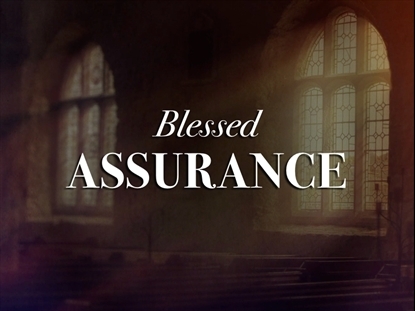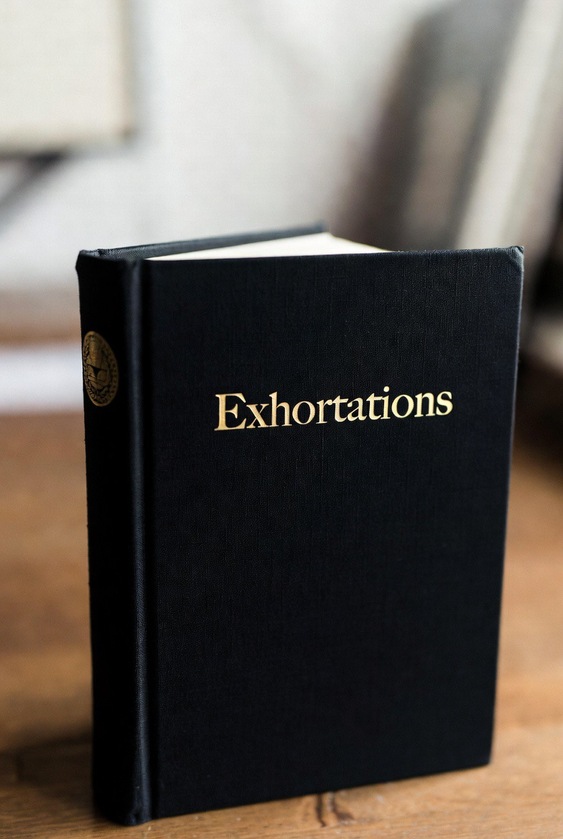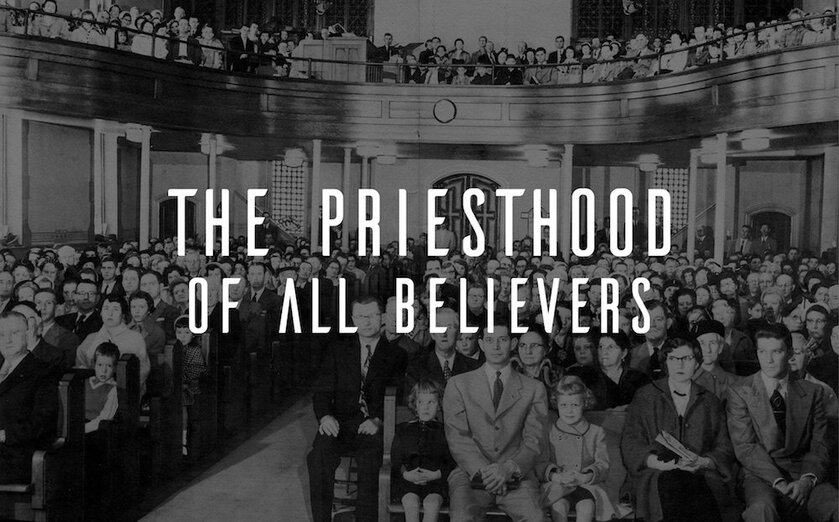Anchored in Assurance: God’s Sovereign Hand in Paul’s Trials
Acts 23:31-35
So the soldiers, according to their instructions, took Paul and brought him by night to Antipatris. And on the next day they returned to the barracks, letting the horsemen go on with him. When they had come to Caesarea and delivered the letter to the governor, they presented Paul also before him. On reading the letter, he asked what province he was from. And when he learned that he was from Cilicia, he said, "I will give you a hearing when your accusers arrive." And he commanded him to be guarded in Herod's praetorium.
Paul is swiftly escorted out of Jerusalem under heavy guard, 400 soldiers, 200 spearmen, and 70 horsemen (v. 23). Once past the most dangerous terrain (the hilly Judean wilderness prone to ambushes), the foot soldiers head back to Jerusalem’s Antonia Fortress, leaving the faster cavalry to complete the journey. This efficient relay underscores the Roman army’s discipline and the tribune’s commitment to Paul’s safety. It was a divine overkill against the 40+ assassins vowing to fast until Paul was dead (v. 12-15).
Romans 13:1-4 comes to mind: authorities are "God’s servants" for good, even unwittingly.
In Paul’s case, this pagan empire becomes a tool for the Gospel’s advance. And extrapolating that theme out into our own universes, whether job losses, health scares, or relational shifts, we might draw some sense of security in the knowledge that God's sovereignty reigns supreme over all that the world throws at us. God’s sovereignty doesn’t erase what the world’s throws; it overrides them. Just as the infantry’s role ends and the horsemen’s begins, our journeys often involve transitions where one phase of divine protection or guidance gives way to another. Faith means we must trust that God orchestrates all these shifts seamlessly.
Proverbs 21:1 reinforces this:
"The king’s heart is a stream of water in the hand of the Lord; he turns it wherever he will."
Waiting on kairos (God's perfect timing) is a theme, Paul must endure uncertainty, yet he’s guarded in a place of relative safety. God’s timing often involves pauses for preparation or divine setups. Paul waits there in Herod’s praetorium, not a grim cell but a palace (ironically built by the Herod who tried to kill Jesus as a baby). For Paul, it's all leading to testimonies before governors, kings, and eventually Rome. This passage ultimately points to the cross, where God’s sovereignty turned the ultimate injustice into salvation.
Keep leaning into that!
Never give up on the gospel. Isaiah 40:31 promises renewal for those who hope in the Lord. Adopt Paul's attitude in all aspects of your life. Be confident in the gospel and content in your ways when guided by the Holy Spirit.
Hear a word from God on this:
Philippians 1:12-14
"Now I want you to know, brothers and sisters, that what has happened to me has actually served to advance the gospel. As a result, it has become clear throughout the whole palace guard and to everyone else that I am in chains for Christ. And because of my chains, most of the brothers and sisters have become confident in the Lord and dare all the more to proclaim the gospel without fear."
Paul sees his chains not as setbacks but as Gospel accelerators: palace guards hear the truth, believers grow bold. It’s the fruit of Acts 23’s events, incarceration leading to courage.
When your hope is fixed, when you know your eternal hope and home, and you know these blessings are your inheritance, you are set free to live in God's glory no matter the circumstances. Assurance then is God's greatest gift to believers.
In Acts 23, Paul isn’t just surviving; he’s advancing the Gospel because he knows his "eternal hope and home." Recall v.11, The Lord stands by Paul, assuring, "Take courage! As you have testified about me in Jerusalem, so you must also testify in Rome." This divine whisper fixes Paul’s gaze beyond Caesarea’s praetorium to an imperishable inheritance.
1 Peter 1:3-4
"Blessed be the God and Father of our Lord Jesus Christ! According to his great mercy, he has caused us to be born again to a living hope through the resurrection of Jesus Christ from the dead, to an inheritance that is imperishable, undefiled, and unfading, kept in heaven for you"
These blessings, eternal life, adoption as heirs, the Spirit’s seal (Ephesians 1:13-14), are ours, not earned but inherited. This is our assurance. This knowledge overrides fear, doubt, and despair, setting us free to live in God’s glory. Not to run-a-muck, but to wait on God's kairos, not in despair but in destiny. It’s the inner freedom that shines. Knowing his home is heavenly, Paul endures uncertainty with a purpose.
Assurance is God’s greatest gift, echoing,
1 John 5:13
"I write these things to you who believe…that you may know that you have eternal life."
This isn’t wishful thinking; it’s wartime confidence. In our universes, it means facing relational shifts or pauses without crumbling, because our inheritance is secure. It’s the Holy Spirit’s witness within...
Romans 8:16
"The Spirit himself bears witness with our spirit that we are children of God."
Confirming we’re God’s children amid the storms. This is our anchor.
Hebrews 6:19
"We have this as a sure and steadfast anchor of the soul, a hope that enters into the inner place behind the curtain"
Reflect: How has the Spirit witnessed to you lately, confirming your identity in the storm?
Here, hope isn’t abstract, it’s an anchor gripping the unshakeable, piercing the veil into God’s presence (echoing the temple’s Holy of Holies, now accessible through Christ, Hebrews 10:19-20). Paul’s praetorium wait wasn’t drifting; it was anchored in God’s promise. This assurance equips the soul for every battle he may face. Engagements in these spiritual battles are not chaotically arranged by the enemy, but a part of God's sovereign strategy and work.
Many Christians don't enjoy this assurance. Some due to a lack of forgiveness, others because their dogma doesn't allow for it. And for most who remain in this fear and uncertainty it's a reflection of their lack of understanding the gospel and the nature of their salvation in Christ. In the place of knowledge they become tyrannized by their emotions.
Some can't identify this assurance in their lives because they can't identify their conversion and the moment of their salvation. And likewise they are likely still caught up in the flesh, enslaved to it, they still feel the pull of sin and therefore they wonder if they indeed have experienced this salvation. And what goes along with this is they then question qthe presence of God's Spirit because they don't see the hand of God at work in their lives, especially in the trials.
It's a heartbreaking reality, assurance eludes many believers, not because God withholds it, but due to their own internal hurdles like unforgiveness, dogmatic rigidity, gospel misunderstanding, and emotional dominance. But mostly because they refuse to walk in the Spirit.
Romans 8:14-16
"For all who are led by the Spirit of God are sons of God. For you did not receive the spirit of slavery to fall back into fear, but you have received the Spirit of adoption as sons, by whom we cry, "Abba! Father!" The Spirit himself bears witness with our spirit that we are children of God"
When God’s hand seems absent in trials, doubts about the Holy Spirit arise: "If He’s here, why this storm?"
Paul could have questioned God's presence during his nighttime escort or deferred hearing, but he discerns divine orchestration. If you don’t "see" God’s work, remember: The Spirit intercedes in weakness (Romans 8:26-27), seals our inheritance (Ephesians 1:13-14), and produces fruit over time (Galatians 5:22-23).
If anyone ever questions your claim, whether it be by decree, dogma, or other religious beliefs, know this, there was a divine witness to your inheritance in Christ.
Who you say?
The Holy Spirit.
And He bears witness that you indeed are a child of God.
How?
1 Corinthians 2:9-10
But, as it is written,
"What no eye has seen, nor ear heard, nor the heart of man imagined, what God has prepared for those who love him"—these things God has revealed to us through the Spirit. For the Spirit searches everything, even the depths of God.
And again...
1 John 4:2-6
"By this you know the Spirit of God: every spirit that confesses that Jesus Christ has come in the flesh is from God, and every spirit that does not confess Jesus is not from God. This is the spirit of the antichrist, which you heard was coming and now is in the world already. Little children, you are from God and have overcome them, for he who is in you is greater than he who is in the world. They are from the world; therefore they speak from the world, and the world listens to them. We are from God. Whoever knows God listens to us; whoever is not from God does not listen to us. By this we know the Spirit of truth and the spirit of error."
The Gospel did this for you. When you received that message and believed you were infused with that Spirit of truth. And in the face of questioning, the Holy Spirit stands as the unassailable witness to our inheritance in Christ, confirming we’re children of God. Not earned by human insight, you didn't learn him in seminary, but His truth is disclosed by the Spirit. The Spirit "searches everything," probing God’s heart to assure us of salvation’s security. This isn’t human conjecture; it’s divine disclosure.
1st John provides a litmus test: True Spirit affirms Jesus’ incarnation, countering antichrist deceptions, and those pesky internal whispers. When religious beliefs challenge your inheritance, discern: Does it confess Christ fully? Doubts from decrees or dogmas? The divine Witness testifies louder.
Paul’s antidote? Immerse in truth: Salvation is by grace through faith, not works or feelings (Ephesians 2:8-9). Assurance grows as we abide in Christ (John 15:4-5), study His Word (2 Timothy 3:16-17), and fellowship with believers.
Feeling "caught up in the flesh" and experiencing sin’s tug?
Paul addresses this head-on:
Romans 7:19
"I do not do the good I want to do, but the evil I do not want to do, this I keep on doing".
Yet he doesn’t despair; he cries, "Thanks be to God, who delivers me through Jesus Christ!" (v. 25).
Salvation doesn’t erase sin’s presence but breaks its power, we’re no longer slaves but sons (Romans 8:15). Assurance comes from our identity in Christ: Dead to sin, alive to God (Romans 6:11).
Going forward, Paul defends himself respectfully (Chapter 24), admitting his temple worship but clarifying it’s according to "the Way" (Christianity). He affirms belief in the Law, Prophets, and resurrection of both the righteous and wicked, core Gospel truths. He notes his conscience is clear, and the real issue is the resurrection and Jesus being the center of that "Way". Felix, familiar with “the Way,” adjourns the case until Tribune Lysias arrives. He grants Paul leniency (friends can visit), but later, with his wife Drusilla, he hears Paul on faith in Christ, righteousness, self-control, and coming judgment. Felix trembles but dismisses him, hoping for a bribe. Paul remains imprisoned two years until Festus succeeds Felix. Felix feared judgment but kept Paul safe, allowing Gospel seeds in high places. Again, God's sovereign hand can be seen at work.
Acts 24 highlights why many miss assurance: Misunderstanding salvation leads to fear, as with Felix, he trembles at The Truth but clings still to worldly hopes (bribes). Paul, on the other hand, grasping the Gospel’s nature, remains content.
Prayer:
Sovereign Father, anchor us in Your assurance amid trials. Witness anew through Your Spirit that we are Your children, overriding fear with Gospel truth. Use our waits and transitions for Your glory, as in Paul’s story. In Christ Jesus' Holy name, Amen.




















